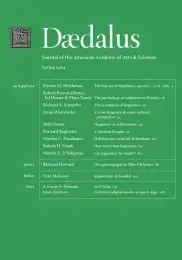Mill between Aristotle & Bentham
Who is the happy Warrior? Who is he
That every man in arms should wish to be?
–William Wordsworth, “Character of the Happy Warrior”
Man does not strive after happiness; only the Englishman does that.
–Friedrich Nietzsche, “Maxims and Arrows”
Powerful philosophical conceptions conceal, even while they reveal. By shining a strong light on some genuinely important aspects of human life, Jeremy Bentham’s Utilitarianism concealed others. His concern with aggregating the interests of each and every person obscured, for a time, the fact that some issues of justice cannot be well handled through mere summing of the interests of all. His radical abhorrence of suffering and his admirable ambition to bring all sentient beings to a state of well-being and satisfaction obscured, for a time, the fact that well-being and satisfaction might not be all there is to the human good, or even all there is to happiness. Other things–such as activity, loving, fullness of commitment–might also be involved.
Indeed, so powerful was the obscuring power of Bentham’s insights that a question that Wordsworth took to be altogether askable, and which, indeed, he spent eighty-five lines answering–the question what happiness really is–soon looked to philosophers under Bentham’s influence like a question whose answer was so obvious that it could not be asked in earnest.
Thus Henry Prichard, albeit a foe of Utilitarianism, was so influenced by Bentham’s conception in his thinking about happiness that he simply assumed that any philosopher who talked about happiness must have been identifying it with pleasure or satisfaction. When Aristotle asked what happiness is, Prichard . . .
